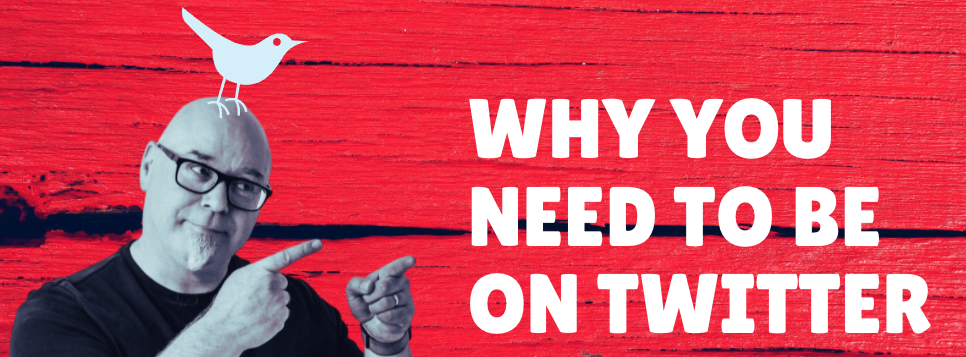If you want to build a credible and influential voice in your industry, then chances are you need to use Twitter in a purposeful and strategic way.
Welcome to the social fireside chats with the PR Warrior (that would be me!). In this video, I chat all about Twitter, and how it can be used to grow one’s influence online.
HERE’S THE TRANSCRIPT:
I know that a lot of people have a love-hate relationship with Twitter.
In fact, they’ve got a ‘hate’ relationship with Twitter.
IN FACT: they probably haven’t got any relationship with it at all because they’re not on Twitter.
But you’re someone trying to build a personal brand, build a thought leadership positioning in the marketplace … if you want to grow your influence in the industry or profession or marketplace in which you operate, then Twitter is probably a channel you need to be on.
Let me explain.
A lot of influencers – they may be YouTubers or journos or editors or podcasters, people who are out there creating content and influencing their audiences – chances are they’re going to be on Twitter.
And Twitter is a great way… it’s probably still a pure social media channel in terms of you can follow anyone, you can communicate with them, and often they’ll talk to you on Twitter, where they might never take your email or your phone conversation.
But it also allows you to build relationships with people who, in all likelihood, you wouldn’t get to meet in real life, and you can start sharing other people’s stuff and be part of their world before trying to influence them in some way.
So say, you want to be a guest on someone’s podcast.
Sure, cold-call them, do whatever you like, but it might be difficult to do. It might not work for you.
But if you become part of their world, you listen to their podcast, you have a view of some of their stuff, you share it, you answer their questions, you’re retweeting their stuff, you’re building a relationship – at least that way, if you do, at some point, email them or you could direct message them on Twitter – they might actually know your name, and at least they know: “Oh, they’re a listener, and they’ve been involved with me, and they know the podcast.”
So that’s at a really micro level of where it can work, but clearly it can work in other parts of your profession or your industry, dealing with other thought leaders, etc.
So, yes, I think there’s lots about Twitter at the moment which is a bit of a cesspool of negativity and hate. I don’t see a lot of it, but if I go searching, I can certainly find it.
And let’s face it, there are a lot of bozos on Twitter, but don’t let that take away from the power of Twitter in terms of a communications channel, a channel that will help you influence and build your audience over a period of time.
It takes a bit of work. It takes probably more work than a lot of the other channels, to be honest, because you need to be on it a fair bit and needs to be a part of your day-to-day habit.
But if you’re trying to build visibility, influence, trust as a leader, advocacy – building fans, followers, advocates, and supporters for your brand, your personal brand, your ideas, your insights – and you want to build a thought leadership positioning in the marketplace, then I think you really do need to put a bit of investment of effort into Twitter.



Leave a Reply